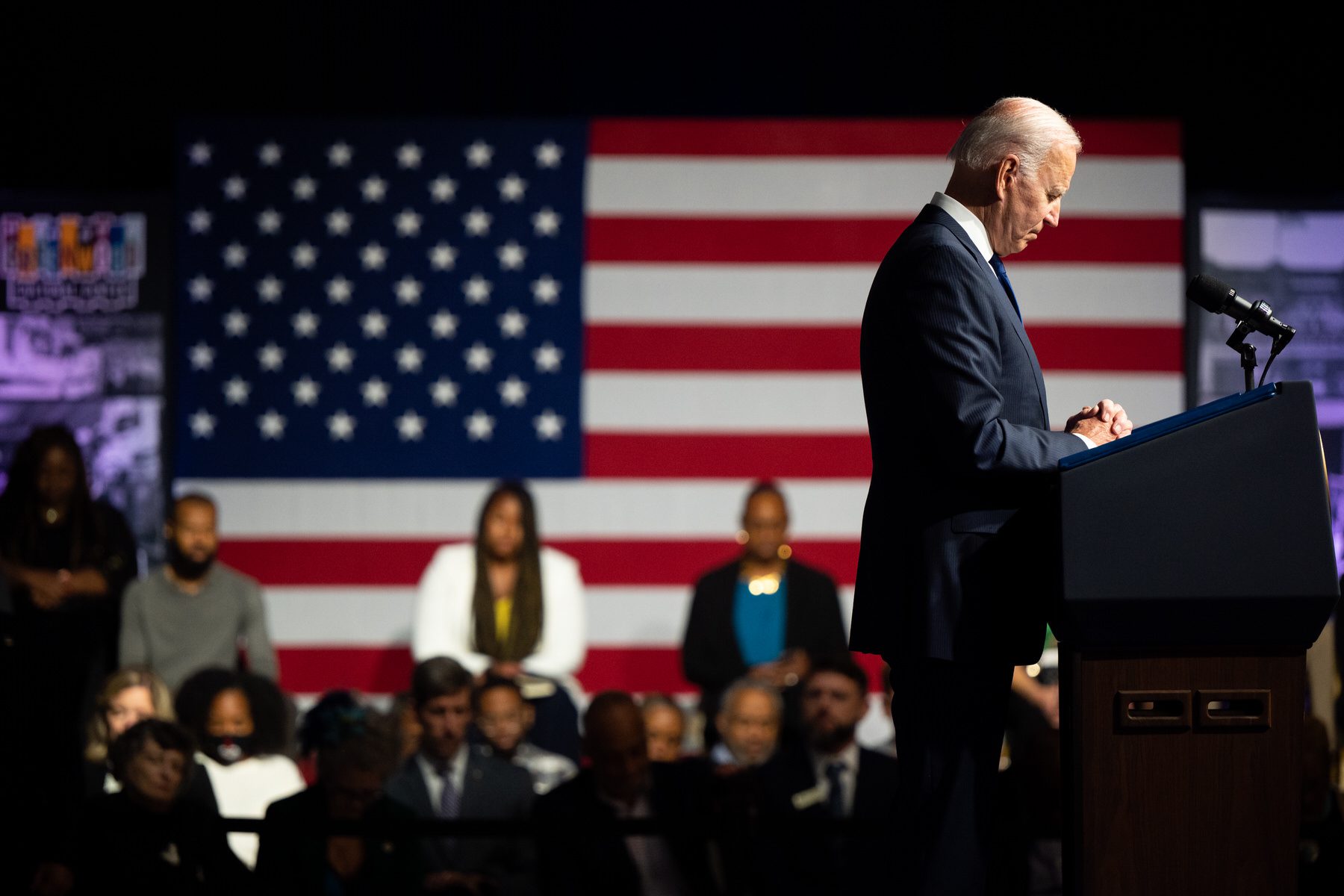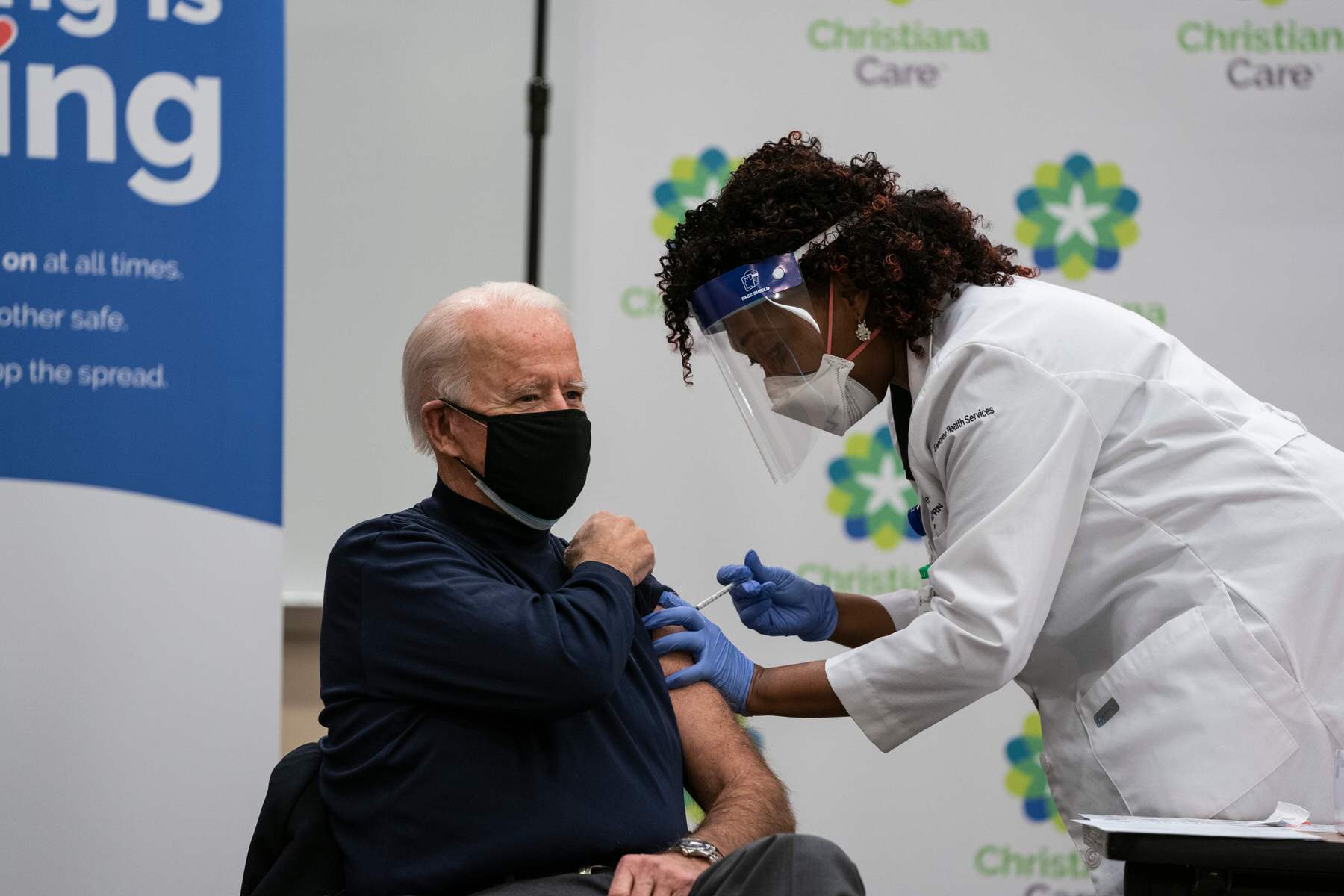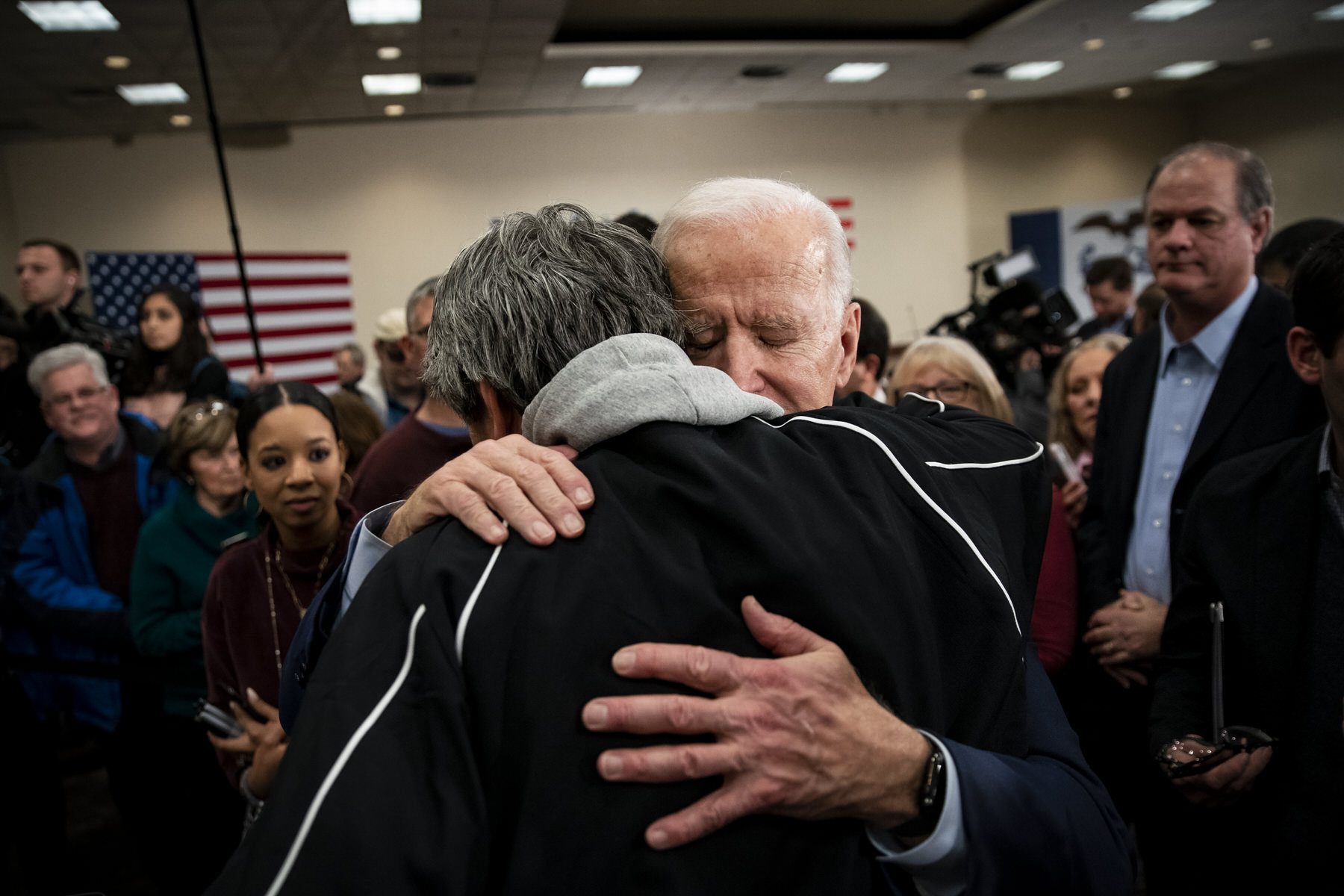Editor’s note: This story has been updated throughout.
“Compassionate.” “Empathetic.” “Inclusive.”
These are traits that President Joe Biden’s supporters say have come to define his first six months in office. And they’re a sharp departure from his predecessor, with the potential to help reshape attitudes and expectations about men’s leadership in American politics and society.
“Most presidents are role models and, for better or worse, their behavior sets the standard for what’s considered acceptable and what’s considered desirable in a leader,” said Democratic strategist Jen Palmieri. “Empathy has been traditionally thought of as a feminine quality. It’s indicative of how limited our definition of leadership qualities has been, and how male-dominated they have been, to the detriment of all.”
As president, in the last six months, Biden has denounced white supremacy and 21st-century voter suppression efforts; he has mourned the hundreds of thousands of Americans killed in the coronavirus pandemic and grieved with the families of George Floyd and those lost in the collapse of a South Florida condominium building, and he has recognized caregiving as an essential part of the country’s infrastructure.
Biden was the first U.S. president to observe the anniversary of the Tulsa race riot in person, meeting with the last living survivors before telling the nation in a seminal speech: “My fellow Americans, this was not a riot. This was a massacre — among the worst in our history, but not the only one. And for too long, forgotten by our history.”
“He said stuff that most presidents would never touch,” said White House senior adviser Cedric Richmond, who was among the Black members of the administration who attended the Tulsa commemoration with Biden. “His life experience is different from most people. He understands getting knocked down, and that sometimes, you need people to help you get up.”

Biden’s political career has also been marked by what some have considered a lack of empathy.
During the 2020 election, he was frequently reminded of his support for the 1994 crime bill, which disproportionately impacted Black communities. On the campaign trail, Biden was also confronted with the legacy of his role as chairman of the Senate Judiciary committee, when he presided over the 1991 testimony of Anita Hill, who accused Clarence Thomas of sexual harassment during his Supreme Court confirmation hearing.
In his presidency, immigration activists have lamented his response to the migration crisis. Family separations at the border continued and the administration has not taken much action even as the crisis worsened this year. (The vice president, who Biden has tasked with navigating the immigration crisis, cautioned migrants not to come to the U.S.’s southern border, a sentiment he has echoed.)
Voting rights activists have pleaded with him to do more beyond talk to battle voter suppression as efforts in Congress have sputtered.
As important as his ability to demonstrate empathy on an individual level will be whether he can harness it to address long standing systemic harms, said Rashad Robinson, president of the racial justice organization Color of Change.
“We have certainly seen the president show up with compassion and empathy, especially when you compare him to Trump or even some of his earlier positions,” Robinson said. “But the road ahead must ensure our systems and structures actually operate on those principles. This means changing the rules like the filibuster that stand in the way of the systemic change that will unlock our ability to change the rules to be more empathetic and compassionate.”
Biden’s emotional reputation predates his presidency and has often marked his half-century career in American politics, with a big Irish personality on display, his flair for retail politics noted and his grief as a widow and father in public view.
Richmond noted he has often caught Biden looking at the card he carries with the latest number of Americans who have died from COVID-19, and has talked with the president about their families and how many died in isolation or with only a dedicated and anguished frontline health care worker in the room.
He drew on his experience as a single parent when relating to American workers who struggled with child care challenges in the pandemic, pushing for help for parents in the American Rescue Plan and the American Families Plan, prioritizing policies that other presidents have not made so central to their agenda.
Before taking office, Biden and Vice President Kamala Harris were both publicly vaccinated, and have since led by example in encouraging Americans to wear masks and maintain social distancing protocols to protect themselves and others. Their behavior stands in contrast to former President Donald Trump, who purposely downplayed the seriousness of the pandemic. Trump did not urge mask wearing and his own vaccination was not made public until after he was out of office.

Biden’s response to the national reckoning around racial inequality has also been far more empathetic than his predecessor’s to those being impacted, his allies contend.
Biden has met repeatedly with members of the Floyd family, assuring his young daughter that her father’s murder would lead to action on policing reform, though federal legislation on the issue has languished so far in Congress. Biden also identified with the burden of public grief.
“It’s horrible and he understands that,” Richmond said. “He cares about people. It’s not about him.”
As Biden campaigned across the country over decades in politics, he became known for getting up close and personal with voters. Pressing a forehead to a grandmother or giving a teenage boy a bearhug were just as common for the Democrat as the standard handshake — so much so that his actions prompted accusations of invasion of personal space during the 2020 campaign. For some, his style could seem like a vestige of a different era, and it drew more direct criticism and claims of discomfort following the #MeToo movement. He also faced allegations of sexual assault from a former staffer, Tara Reade.
Polling during the Biden-Harris administration has shown high marks for the president early in his tenure — a testament to what voters want in a leader, said pollster Christine Matthews.
“It was exactly what this country needed after four years of Donald Trump, who was an embodiment of lack of empathy, lack of compassion, lack of relatability. Coming out of a pandemic where so many people are hurting and we need empathy and compassion.”
His leadership is also part of a shift in recent years in gender identity politics, Matthews said.
“In 2018, women candidates really broke molds in terms of running as full and authentic candidates, particularly Democratic women,” she explained. “The way women candidates ran in 2018 broke the mold, and changed the way we viewed women candidates, and also how women looked at running as their whole selves.”
Now, as president, the historic governing relationship between Biden and the first woman vice president is also breaking norms. Harris has emerged as the full partner Biden envisioned last summer when he nominated her, with an increasingly robust policy portfolio and a shared bully pulpit on issues including voting rights, pregnancy-related deaths, policing reform, discrimination against Asian Americans and vaccine equity.
Such empathy and a tendency towards collaboration could belie a president’s strength and, for some, suggest weakness, warned Alexis Coe, author of “You Never Forget Your First: A Biography of George Washington.”
“One of the things that the country is most fearful of right now is disunion,” Coe explained. “And to confront disunion, a president cannot be demure or silent. That doesn’t have to be gendered. But it does have to be potent and palpable.”
Still, it is a style of politics that has helped clear the way for Biden to govern as his full self, said presidential historian Douglas Brinkley.
“Biden is just trying to say that the key to being a good president is showing a sense of decency and civility,” Brinkley said. “It is important, at a time of the #MeToo movement, Black Lives Matter, to be a listener. He’s showing that it’s just not women who need to lead with an open heart and in a sense of empathy, but that men can be that way also.”





